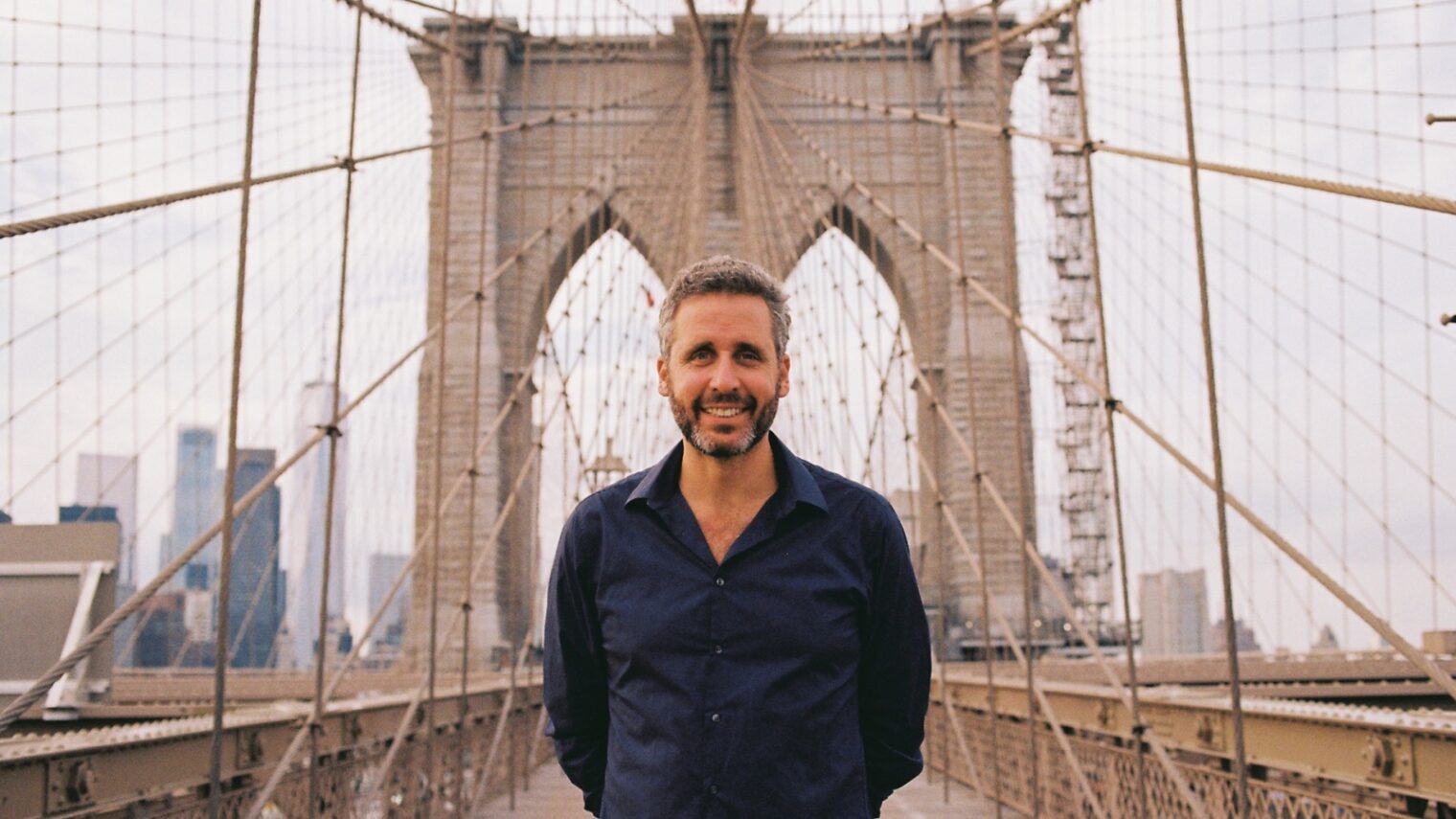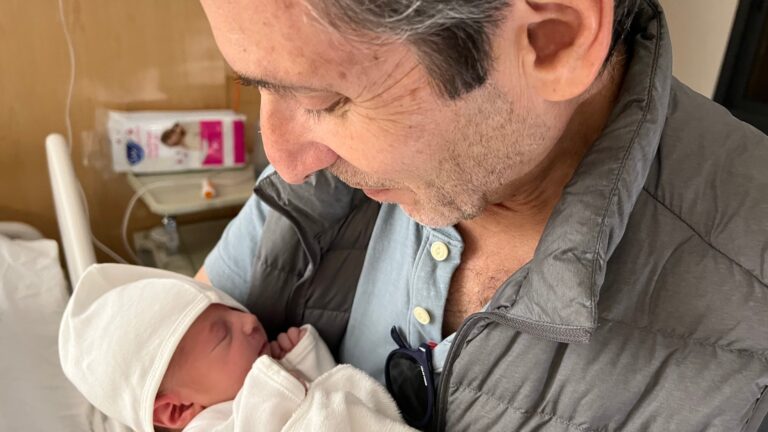For an Israeli filmmaking couple, the decision to create a documentary of Ari Nagel, the infamous “Sperminator” who’s fathered more than 130 kids, came from a deeply personal debate.
“I think that as a couple living in Israel who’ve reached a certain age, there’s some kind of social expectation and question about when we’ll have kids. In Judaism, procreation is a superior value, and this is a country that really encourages births,” says Adi Rabinovici.
“As a couple, we don’t take this decision lightly. Then we meet this guy who goes and does this without giving it a moment’s thought, and makes more and more children, and it doesn’t seem to him like something that should be given second thought. That really surprised us, and it interested us to understand what motivates such a person.”
The result is “The Baby Daddy,” a documentary film that Rabinovici created with her partner, Yair Cymerman.
The film follows Nagel, a previously Orthodox Jew from New York, on his mission to donate his sperm to any woman wanting it around the world, on the way in which he keeps in touch with many of the children he fathered and on his relationship with his nuclear family.
“We met Ari a decade ago through a friend of ours who met him in New York,” says Cymerman. “He came to Israel and we met up with him, and he said ‘I have seven kids,’ and we were like, what the hell, this is really interesting. We were intrigued and asked loads of questions.”
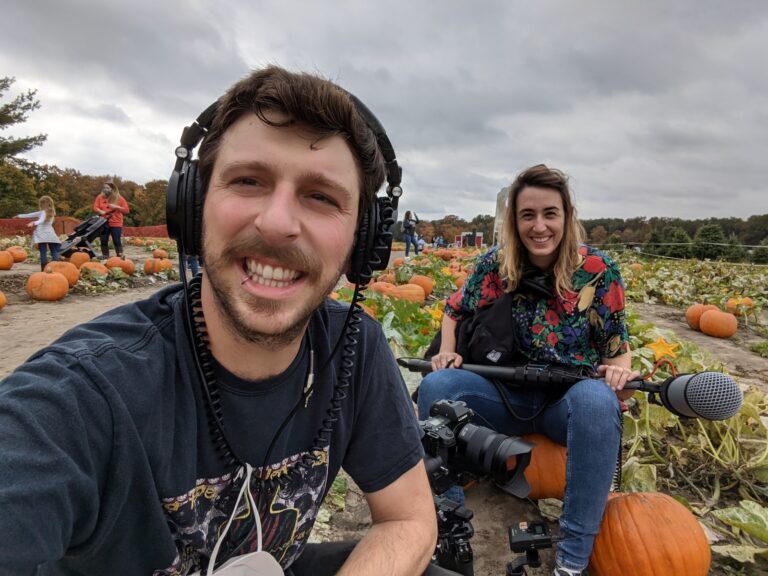
Five years later, he told them about a newspaper in New York that featured him as its cover story.
“That’s when he already had 22 kids. He told us that he’ll be coming to Israel two weeks later to donate to some woman and that he has no problem that we’ll start filming,” Cymerman relates. “He didn’t realize that we’re going to be glued to him for four and a half years.”
Theme: fatherhood
While “The Baby Daddy” is the couple’s debut movie, it wasn’t their first foray into film – Rabinovici is a freelancer director, film photographer and video editor who’s worked with leading Israeli media outlets, and Cymerman is a documentary director and film photographer who’s previously covered topics like the plight of the Yazidis in Iraq or Catalonia’s quest for independence from Spain.
“This movie is our passion. It started out from our great desire to do something of our own, to create a documentary in which we’ll tell a story that interests us. When we began, we thought we’d be making a short movie,” Cymerman explains.
“But during filming we realized that there’s so much more to it that we decided to invest a large amount of money that we’d saved up and to travel to the States for two months to begin shooting.”
Since then, the couple traveled to the States numerous times for prolonged filming periods, and also accompanied Nagel on his own travels around the world and on his meetings with his many children. On the way, they turned to film funds and companies and got substantial funding for their project.
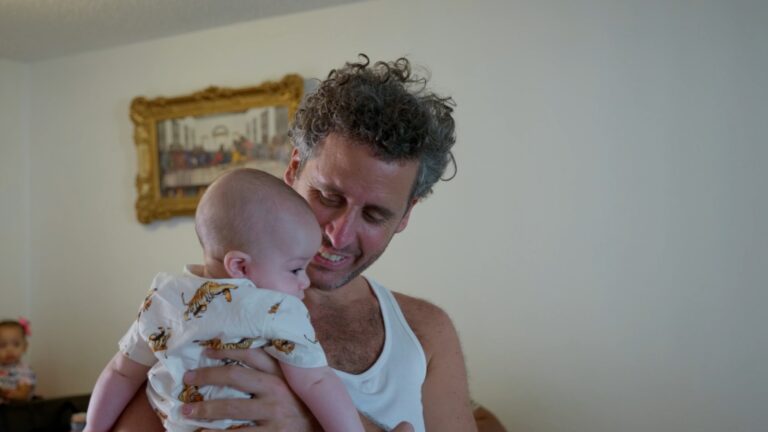
“The main theme of the movie is fatherhood,” Rabinovici explains.
“The movie deals a lot with complex fatherhood that arises from this situation, but also with Ari’s relationship with his father, who’s an Orthodox Jew who doesn’t completely accept his kid but loves him, as well as the relationship between Ari and his son, Tyler. We started shooting when Tyler was 14 and ended when he was 18. He’s the only kid who wasn’t conceived as a sperm donation.”

A fly on the wall
“Filming was a very interesting experience, because Ari is a magnet for very interesting and special people,” Cymerman adds.
“Also, there’s this whole family unit – getting to know the family, the women and all the kids. They’re very welcoming and inclusive and very quickly brought us into the family, which was really beautiful.”
The goal, Rabinovici says, was to be a fly on the wall and just film things as they happened.
“I think that the message is that everyone wants to belong somewhere, even if it’s done in a more problematic and complex way. And perhaps that family is something that we can choose, and that we need to try and learn and understand others,” she adds.
“Even if the reality looks like something outside of the norm or something very different from what we know,” adds Cymerman.

“We approached this story in a very judgmental manner,” Rabinovici admits. “You criticize it and you ask yourself why would people do this sort of thing. But the more we got to know Ari and the women, the more we realized that things aren’t black and white, that there’s a lot of gray. There are many very problematic issues with this thing, and we don’t completely understand why he does what he does. And yet there are also very beautiful things.
“Sometimes it was also difficult and complex. You’re filming someone for a long time, and by now Ari is also our friend. You start worrying whether he’s doing the right thing.”
It became an addiction
“Research shows that although men don’t necessarily have a ticking fertility clock, once a man reaches 45 his sperm quality can deteriorate and that can create a lot of problems,” Rabinovici says.
“For many years Ari spoke about stopping by the age of 45 so that he doesn’t become a liability. But he didn’t. We waited for him to stop, and we saw that he became addicted to it.”

“That’s something that really worried us, also during filming, out of real concern for Ari. To this day, we ask him and talk to him about whether he plans on stopping,” she says. “But it looks as though he can’t. It’s a bottomless pit. He’s looking for somewhere to belong and to be loved unconditionally, because that’s something that he didn’t get from his family. But nothing fills that void.”
The documentary is now making its rounds in film festivals in Israel and the United States before being released to streaming services. Nagel often accompanies the couple to screenings, where Q&A sessions often go much longer than the allotted 20 minutes.
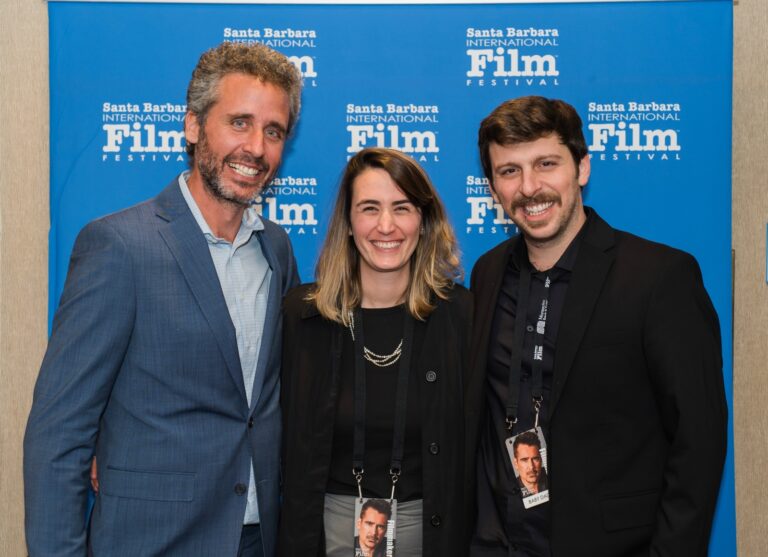
“It’s a documentary that’s both a comedy and a drama. People laugh during the movie, they’re shocked, and they leave it with different opinions. Some people leave the movie thinking that Ari’s doing the most correct thing in the world, and others think it’s horrific. We’ve had amazing reactions from all directions.”
Cymerman notes that some viewers can’t believe the movie is nonfiction. “But sometimes life surpasses imagination,” he says.




